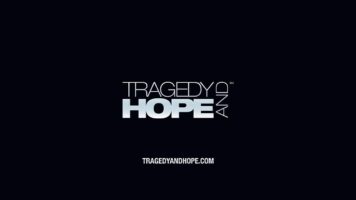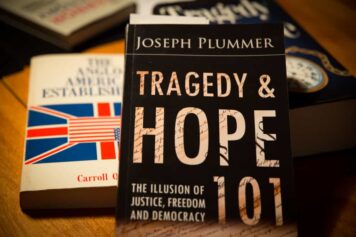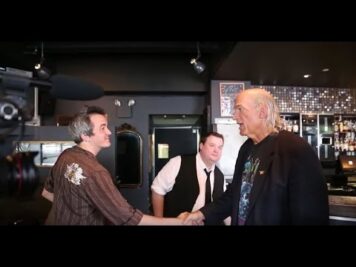Here’s the article Tom Willcutts posted in the T&H Community (May, 2012), the catalyst which brought about this debate:
As I stated in my review of Larken’s proof of No Government, he put together a very nice animated video to demonstrate to people that the problems he identifies with government cannot be solved by choosing a benevolent King to be ruler. The title of the video is “If You Were King:”
http://www.youtube.com/watch?v=BNIgztvyU2U
Larken opens with: “So the world is a pretty messed up place, but just think how great it would be if you were in charge.”
Okay – so I am going to accept that challenge. I shall be King. And I am going to use my powers as King to design a government. And after I am finished designing the government, I will abdicate the Thrown and cede my power to this new government, in the tradition of Cincinnatus.
With the powers that Larken has bestowed upon me … my approach is to survey the various governments and laws of various nations/states and pick and choose the ones that I think have worked best. In fact, I think one of the drawbacks of the Rose/Molyneux approach is that they are supposing that something that has never been tested or worked in the past will all of a sudden work now, due to evolutionary improvements in human reasoning and logic. I think you’d have a difficult time demonstrating that human powers of reasoning and logic have really evolved that much over time. Is human reasoning today superior than that exhibited by the likes of Plato, Da Vinci and Newton? Examples that reach back in time hundreds or thousands of years.
Molyneux uses the “end of slavery” as an example of the advancement of human reasoning and morals. I have to question that. Wouldn’t it be more accurate to say that the methods of enslavement have become more sophisticated? And isn’t true that the rulers who turned away from older forms of slavery still engage in conduct that is every bit as barbaric and cruel as they did in the past?
The challenge of designing a good government and a good set of rules is not limited to keeping them insulated from those who would corrupt and manipulate them for their own power and wealth. They must also be able to operate productively and efficiently, or the people will abandon them for something better. Therein lies the advantage of things that have evolved naturally and have been tested.
The honest and sincere socialists looked at all the wealth and advancement in technology created by capitalism and thought they could keep the good things that had been created and produced by capitalism and remove the bad things attaching to capitalism simply by excising the evil capitalists from the equation, whom they did not view as necessary. Why not simply allow the honest laborers to be the owners of the fruits of their labor? Simple and good theory – but it had never been tested, and the practical reality failed to live up to the theory.
Similarly, it seems the honest and sincere anarchists believe that we can maintain all the good supplied by cooperative rules, so long as we excise those rules from the trappings of government from which they evolved. Good theory – but it has never been tested. For example, having set rules and laws provide predictability, without which people are not willing start new ventures and to take chances, given the uncertainty that attaches to a make-it-up-as-you-go-along system. Some things evolved over time because they generate better results.
So with that prelude … I am going to set forth the design of my government, where I borrow from various systems that I believe have been tested. Since for purposes of Larken’s intellectual challenge I am initially King of this make-believe land, I am going to name it “Libertopia,” which I admit to stealing from Larken & Molyneux’s anarchy group. (Actually I am just going to borrow it – not steal.) :-)
So …. I am going to start with a Constitution, which if done correctly serves a useful purpose. A Constitution should contain relatively immutable principles and the basic organizational outline of government, which cannot be altered except by an overwhelming consensus of the citizens. Most of the rights found in the Bill of Rights would be included. In addition to guaranteeing certain fundamental rights, my Constitution will also strictly set forth the basis by which the government will be funded. Herein is where I am going to dispel the taxing premise to Larken’s proof. The Constitution is going to provide for a monetary system.
I am going to adopt the monetary principles advocated by Stephen Zarlenga:
“Making the power to issue money a public function — enabling the government to use its money power — creating and spending money into circulation — to address [the spending needs of government]. Economist Kaoru Yamaguchi’s computer model has shown that a public-based money system and spending government money [on the functions of government] is the best form of economic growth.”
The Constitution will strictly address the things that government can spend money on as part of its ordinary functions. The Constitution will also place limits on the growth of government spending. A departure from these spending limitations will be permitted only by a popular referendum – not by the votes of elected officials. There will be elections for those who have administrative functions within the government. And there will be elections for representatives who can pass laws within the limits of the Constitution. There will be some charges for some government services, and the government will always accept the money that it issues for payment of such services. There will not be any restrictions, however, on the voluntary use of any other currency, nor will anyone be compelled to accept any particular currency – including government currency.
There will be a court system that follows the English common law/jury system model. As King, I will initially choose the body of common law precedent that will act as the starting point for the common law. I will also choose certain statutory laws regulating commerce, private property and criminal law, where I believe that set rules are preferable to the common law in terms of certainty and predictability. The Court system will have trial courts and two levels of Appellate Courts – one level of Appellate Courts that may hear reviews of the decisions of the trial courts and one level that is charged with ruling upon Constitutional issues – the Supreme Court. There will be nine justices on the Supreme Court and their terms of service will be limited in duration and staggered. Any decision of the Supreme Court that fails to obtain the approval of 7 of the 9 justices may be appealed to the legislature, which can overturn the ruling by a 75% majority. Any civil/private litigants can voluntarily opt out of the court system and have their dispute resolved by private dispute resolution system instead. The right to choose to proceed in court with a jury, however, shall be a Constitutional right, which may only be waived in a post-dispute setting. In other words, you cannot unwittingly or coercively contract away that Right in advance of your dispute. After a dispute arises, the parties can opt out of court (trust me – it’s an important distinction).
There will be no prison system in Libertopia. There can be detainment of potentially dangerous individuals pending trial, but there will only be two modes of punishment. One form of punishment will involve restitution and fines, and the other will be banishment from Libertopia, which will be reserved for those crimes/individuals that present an unreasonable danger to society. Victimless crimes will be banned by the Constitution (and they would be inconsistent with the punishment scheme in any event.)
The playing field for access to legal professionals who present evidence and proof in a court will be made level in Libertopia, as such professionals will be provided without charge by the legal system and assigned to cases at random – the same with judges. People can always choose to represent themselves. And again, private litigants can always opt out of having their case decided in court. People can also hire attorneys for whatever other legal work they desire, except for presenting evidence in a court.
In Libertopia, the model for defense will be Switzerland. All citizens shall be provided with military firearms and training. There will be full-time Libertopian guards for limited purposes of civil defense and police functions, but the principal deterrent to an invading army will be a fully armed citizenry, who will possess the same arms as the government.
Being a citizen of Libertopia with the duties and benefits that attach to such citizenship is totally voluntary. The citizens shall be comprised of the initial group and their offspring. Foreigners who wish to become citizens must be sponsored and approved. Any person can choose to denounce their citizenship at anytime without condition or penalty.
I could put more meat on these bones, especially the benefits to be supplied by Libertopia — but that will do for now. Libertopia has no coercive taxation, no monopoly on currency, no monopoly on the means of defense, no monopoly on dispute resolution, no coercive membership in Libertopia, and no prison system. I respectfully submit that I have rebutted Larken’s proof of no government, and I did not do this by definitional word-play, but rather by attempting to construct a better government. And I also submit that my system is better tested than that which is proposed by Larken & Molyneux.
Critique and criticism are more than welcome – after all …. We are in the land of Libertopia for the moment. :-) -Tom Willcutts, May 06, 2012











